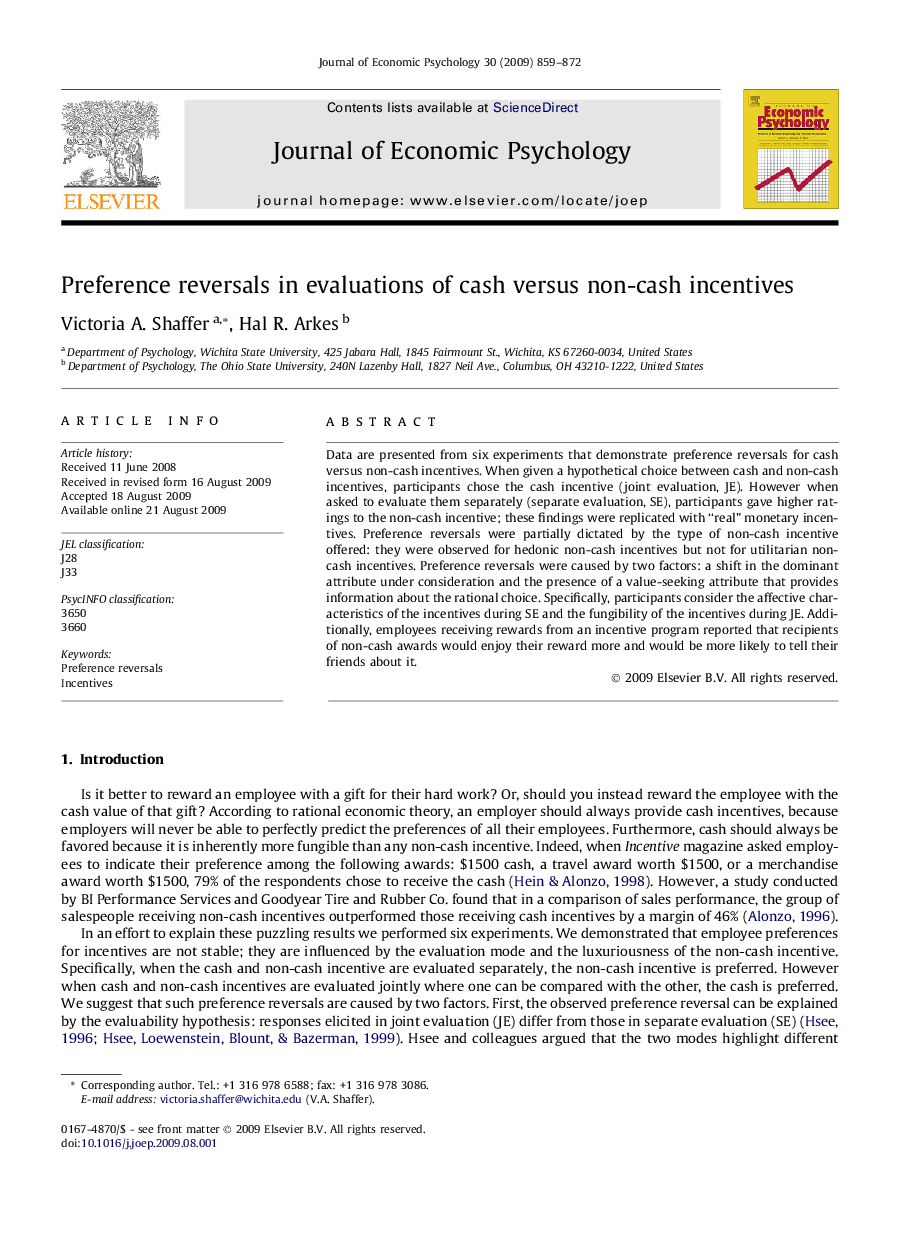| Article ID | Journal | Published Year | Pages | File Type |
|---|---|---|---|---|
| 885267 | Journal of Economic Psychology | 2009 | 14 Pages |
Data are presented from six experiments that demonstrate preference reversals for cash versus non-cash incentives. When given a hypothetical choice between cash and non-cash incentives, participants chose the cash incentive (joint evaluation, JE). However when asked to evaluate them separately (separate evaluation, SE), participants gave higher ratings to the non-cash incentive; these findings were replicated with “real” monetary incentives. Preference reversals were partially dictated by the type of non-cash incentive offered: they were observed for hedonic non-cash incentives but not for utilitarian non-cash incentives. Preference reversals were caused by two factors: a shift in the dominant attribute under consideration and the presence of a value-seeking attribute that provides information about the rational choice. Specifically, participants consider the affective characteristics of the incentives during SE and the fungibility of the incentives during JE. Additionally, employees receiving rewards from an incentive program reported that recipients of non-cash awards would enjoy their reward more and would be more likely to tell their friends about it.
